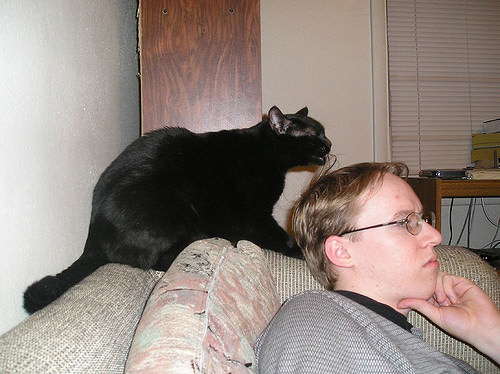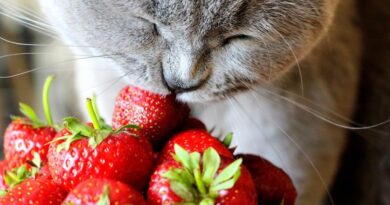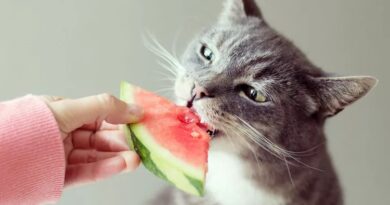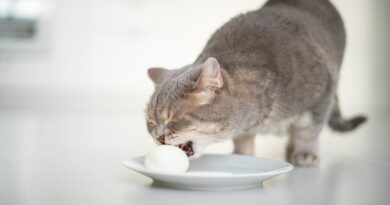Why Does My Cat Eat My Hair? Understanding This Feline Behavior
Cats are known for their quirky habits, but few behaviors are as puzzling—and occasionally frustrating—as a cat’s tendency to nibble on human hair. If your feline companion has ever taken a sudden interest in your locks, you’re not alone. This peculiar behavior can leave cat owners scratching their heads, wondering, “Why does my cat eat my hair?”
In this article, we’ll explore the possible reasons behind this behavior, its implications for your cat’s health, and practical steps to address it. By understanding your cat’s motivations, you can strengthen the bond with your furry friend while ensuring both of you stay happy and healthy.
1. Natural Instincts: Grooming as a Social Bond
Cats are inherently social animals, even if they occasionally enjoy solitude. Grooming is one way cats show affection and establish social bonds with others. When your cat nibbles on or licks your hair, it may be attempting to groom you, considering you a part of its “family.”
Why It Happens:
- Mimicking Mother’s Behavior: Kittens groom each other and are groomed by their mother as a sign of care and affection. Adult cats may carry this instinct into their relationships with their human caregivers.
- Trust and Affection: Grooming you is a sign that your cat feels secure and trusts you deeply.
What to Do:
While this behavior is usually harmless, if it becomes too frequent or bothersome, you can redirect your cat’s attention with toys or gentle training.
2. Curiosity and Texture Fascination
Cats are naturally curious creatures. The unique texture, scent, or movement of your hair may intrigue your cat. Hair strands might resemble string-like toys, which cats often enjoy playing with or chewing.
Why It Happens:
- Scent and Familiarity: Your hair carries your unique scent, which your cat finds comforting.
- Movement Fascination: Long hair that moves when you walk or swing your head might trigger a playful response in your cat.
What to Do:
- Offer safe chewable toys to divert your cat’s attention.
- Avoid swinging your hair close to your cat if you want to discourage the behavior.
3. Attention-Seeking Behavior
Cats are experts at getting your attention. Hair nibbling could be a way for your feline friend to interact with you, especially if you react strongly when it happens.
Why It Happens:
- Reinforced Behavior: If you’ve laughed, talked, or reacted strongly when your cat first nibbled on your hair, they might have learned that this behavior gets your attention.
- Boredom or Loneliness: Cats may resort to unusual behaviors like hair-eating when they feel bored or left out.
What to Do:
- Spend more time engaging in play sessions to ensure your cat feels mentally stimulated.
- Avoid reinforcing the behavior by staying calm and redirecting your cat’s focus.
4. Stress or Anxiety
Stress is a common trigger for unusual behaviors in cats. Hair nibbling or eating may be a compulsive behavior that helps your cat cope with anxiety or stress.
Why It Happens:
- Changes in Environment: Moving to a new home, adding a pet, or introducing new people can make your cat anxious.
- Separation Anxiety: Cats that form a strong attachment to their owners may exhibit this behavior when they feel insecure or stressed about your absence.
What to Do:
- Identify and minimize stressors in your cat’s environment.
- Use calming products like pheromone diffusers to help your cat feel more secure.
- Consult a veterinarian if the behavior persists or worsens.
5. Nutritional Deficiencies
In some cases, cats chew or eat hair because they lack certain nutrients in their diet. This behavior may be linked to a condition called pica, which is the consumption of non-food items.
Why It Happens:
- Dietary Imbalance: Deficiencies in essential vitamins and minerals can lead to abnormal cravings.
- Health Issues: Pica can also be a symptom of underlying medical conditions, such as gastrointestinal problems or anemia.
What to Do:
- Ensure your cat is on a high-quality, balanced diet.
- Schedule a veterinary check-up to rule out medical conditions.
- Avoid leaving loose hair or items that your cat might chew unattended.
6. Teething or Oral Fixation
For kittens, teething can cause them to chew on various items to soothe their gums. Older cats, on the other hand, might develop an oral fixation, leading them to nibble on hair or other objects.
Why It Happens:
- Kittens: Teething kittens often chew on anything they can find, including human hair.
- Adult Cats: Oral fixations can develop as a way to self-soothe or out of habit.
What to Do:
- Offer teething toys for kittens and dental treats for adult cats.
- Regularly trim loose strands of hair to reduce the temptation.
7. Exploring Their Environment
Cats often use their mouths to explore the world around them. Your hair might simply be another fascinating element of their environment to investigate.
Why It Happens:
- Curiosity: Cats are naturally drawn to novel textures and smells.
- Learning Process: Young cats, especially, use their mouths as a way to understand objects.
What to Do:
- Create a stimulating environment with plenty of toys, scratching posts, and climbing trees.
- Supervise your cat’s behavior around your hair and gently redirect them if needed.
8. Health Risks of Hair-Eating in Cats
Although occasional hair nibbling is usually harmless, ingesting large amounts of hair can pose risks to your cat’s health.
Potential Risks:
- Hairballs: Ingested hair can accumulate in your cat’s digestive system, leading to hairballs that may cause vomiting or constipation.
- Intestinal Blockages: In severe cases, excessive hair ingestion can result in life-threatening blockages that require surgical intervention.
When to Seek Help:
If your cat frequently vomits or shows signs of discomfort, such as lethargy or loss of appetite, consult a veterinarian immediately.
9. How to Discourage Hair-Eating Behavior
If your cat’s hair-eating habit becomes problematic, there are practical ways to discourage this behavior while maintaining a strong bond with your pet.
Steps to Take:
- Redirect Behavior: Offer engaging toys or treats whenever your cat attempts to nibble on your hair.
- Positive Reinforcement: Reward your cat with praise or treats when they interact with toys instead of your hair.
- Environmental Enrichment: Provide stimulating activities to keep your cat mentally and physically occupied.
- Regular Grooming: Brush your cat regularly to reduce their need to groom you.
- Avoid Punishment: Never scold or physically punish your cat, as this can lead to fear or aggression.
10. Understanding Your Cat’s Unique Personality
Every cat is unique, and their behavior reflects their personality, experiences, and environment. Understanding why your cat eats your hair requires observation and patience.
Tips for Better Understanding:
- Monitor Triggers: Take note of when and where the hair-eating behavior occurs to identify possible triggers.
- Bonding Activities: Spend quality time with your cat to strengthen your relationship and reduce anxiety-driven behaviors.
- Seek Professional Advice: If the behavior persists or worsens, consult a veterinarian or animal behaviorist for tailored guidance.
Conclusion
Hair-eating in cats is a multifaceted behavior that can stem from affection, curiosity, stress, or even health issues. While it’s often harmless, understanding the underlying cause is essential to ensuring your cat’s well-being and maintaining a harmonious relationship.
By providing a stimulating environment, addressing any potential stressors, and offering proper nutrition, you can help your cat overcome this quirky habit. And remember, patience and love go a long way in nurturing a happy, healthy feline friend




